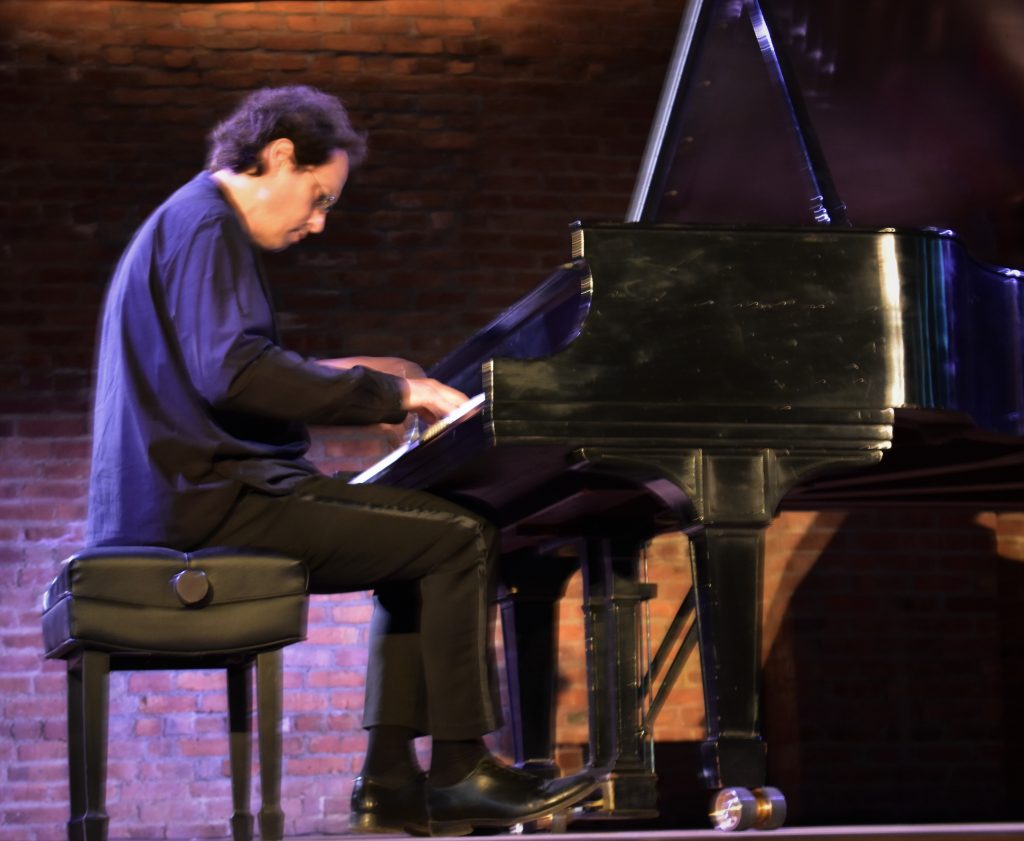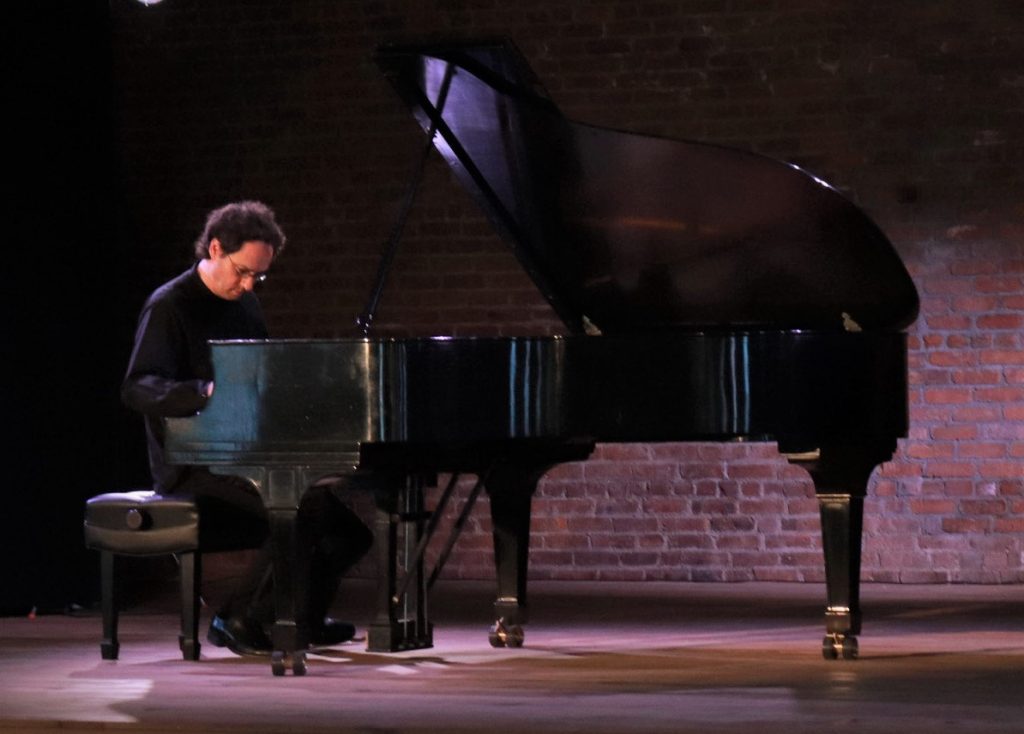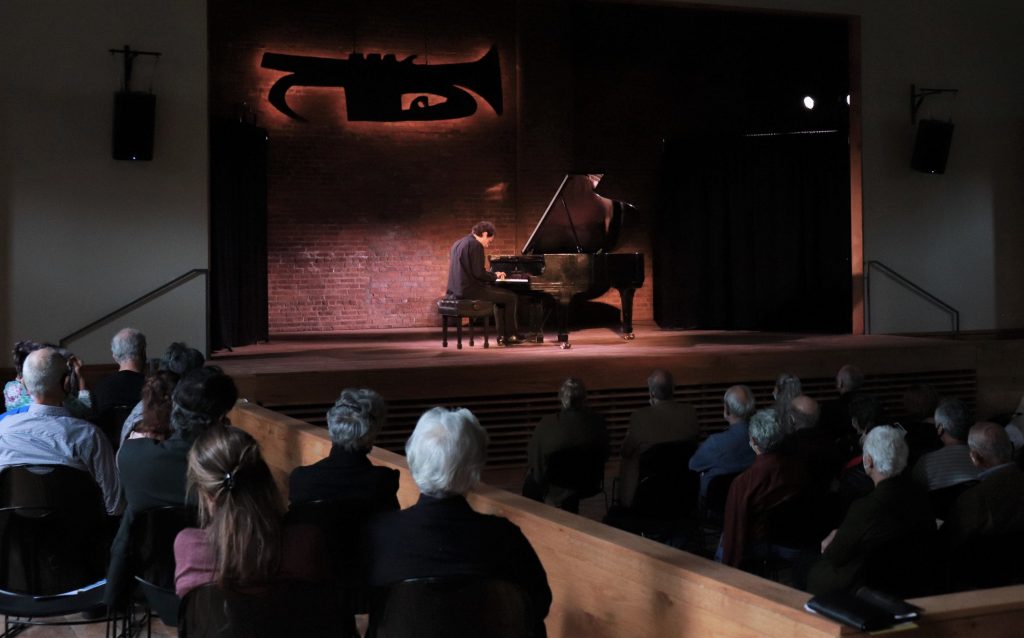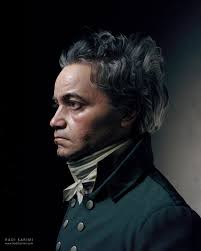
by Kevin T McEneaney
Shortly after Beethoven huddled with his unstable brother Carl’s household, just outside of Vienna during Napoleon’s canon bombing onslaught of Vienna in 1809, he moved alone into a small rural cottage; that autumn, he composed three piano sonatas (as well as other work). The middle of these three, Sonata no. 25 in G, op.79 opened Shai Wosner’s program at The Stissing Center.
During this period of confined seclusion, Beethoven’s enragement against Napoleon ebbed wearily into discovering a deeper lyrical mode, of which op. 79 is an example, especially in its depiction of the pleasures of bucolic solitude. This piano sonata and no. 78 were commissioned by Muzio Clementi. Lewis Lockwood observes humorously that 79, unlike its predecessor, possesses an ease and simplicity that any amateur can play (a “consolation prize” for all the missed notes by those who attempt 78).
As a warming-up exercise, op. 79 was inviting and delightful, as Wosner permitted his fingers to explore the keyboard action of the newly rebuilt 1910 baby grand Steinway. The bucolic interlude was sensitive and an invitational delight.

In literature one might debate what is the greatest single epic: Homer’s Odyssey, Virgil’s Aeneid, Dante Comedia, von Eschenbach’s Parzival, or Byron’s Don Juan, but in music the question falls on merely two candidates: J.S. Bach’s Goldberg Variations and Ludwig van Beethoven’s Diabelli Variations (1823).
In both works Bach and Beethoven explore a strict microcosm to create a macrocosm, the purpose of an epic. The performance of this epic offers a pianist the opportunity to climb a Mount Everest. At The Stissing Center last Sunday pianist Shai Wosner put his fingers on the keyboard of a recently rebuilt 1910 Steinway baby grand.
The brief, humorous opening presents a charming invitation. The work explores the many moods of humanity in a taxonomy limited almost entirely to C major. These are all harmonic variations on a waltz by the Viennese music publisher Anton Diabelli (1781-1858).
The great challenge in performing the work resides in excavating the emotional nuances. I appreciate the recordings of this masterpiece by the Swedish pianist Hans Pålsson and the Belgian pianist Jan Michiels, yet the audience something new and authentic.
Shai Wosner (b. 1976), currently acclaimed by Pinchas Zukerman. Wosner’s most recent recording (Gramophone 2020) was a collection of Schubert piano sonatas. One of the extraordinary challenges of the Diabelli Variations is that the performer has a choice: either represent an imagined interpretation of Beethoven’s personality or—to a significant extent project one’s own.

Wosner has chosen the former. There are versions of Variations that project stealthily soporific satire, charming excursions, poignant asides, etc. Wosner digs deep into Beethoven’s psyche. Wosner sees Beethoven as a wounded artist of genius like Homer, Dante, Shakespeare, and Beckett. Wosner’s portrait is that of Beethoven descending into the bourgeois Inferno of the Waltz.
Playing strictly from memory, Wosner never missed a note. There was only a one or two second pauses between each movement, which psychologically contributed to the shocking, collisional impact. Yes, the waltz is a nightmare version of madness itself!
Under Wosner’s fingertips many movements became brutal parodies. You want a waltz? How about this piece of parlor room kitsch? Or what about some parlor room bombast empty of any possible meaning? You want noise to grab attention? Wosner’s performance became an Anatomy of Melancholy wherein the waltz provided the most ludicrous episode in music history. Variations buries the waltz, smothers it in satire, just as Jonathan Swift’s Gulliver’s Travels humiliates English imperial rectitude. Beethoven expresses his rage against ignorance and authoritarianism.
After three brief bows Shai Wosner appeared for an encore. He played one of Franz Schubert’s Hungarian Melody in B minor, D817, which provided liberating relief from the enjambed claustrophobia of Variations. It was a soothing relief to discover such deep, compassionate feeling with this Schubert conclusion.

Shai Wosner’s website is: http://www.shaiwosner.com/press.html